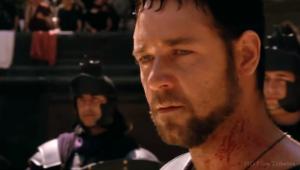I had a few downed limbs but nothing serious. Get used to that down here!!! Winter is actually one of the worst storm seasons (like last two weeks of December until the end of April). I'm a witness that nothing stops lightning (glad I had good insurance). I lost a receiver, a 6 channel professional power amp, a projector, and a $2500 subwoofer from a lightning strike....those were nothing because I almost lost my life in that one too!!!! I was getting in the car and the bolt struck really close to the house, I felt my hair go funny and the next thing I saw was just all yellow and the sound of loud electricity (the zap sound)!!!! I was scared!!! When lightning comes to Florida - don't touch anything (and my house electrical is properly grounded too).
A Tale of Power Loss and Surge Protection

The next morning a line of severe thunderstorms rolled past northwest Florida and rambled on through parts of other southeastern states. We even had a tornado watch, including a robo call from county authorities urging us to hunker down and look for the safest room in the house to flee to should the worst happen. The Weather Channel even had a warning that the first thing to do when a tornado approached was not to grab a camera and run outside to take a picture of it!
My area, with heavy rains, escaped the worst of it. But the night before, in a preview of coming attractions, a brief storm popped up. I was working on a calibration for an upcoming review, and when the thunder started to rumble I elected to push on through it, since a hard deadline was fast approaching. Bad move. We lost power for just an instant, but it was long enough for the projector under review to shut down, along with my computer and a half-finished calibration. Luckily the projector powered up again without incident and none the worse for the abuse (it employs lasers for its illumination, not a lamp—lamps are very sensitive to being shut off without a fan-driven cool-down period. I had also saved enough data from the calibration to enable a quick re-do. I waited a bit until the storm passed, then resumed my work, though it was already, and perhaps appropriately, well past the witching hour.
But all that got me thinking seriously about power conditioners and surge protectors, none of which I had in place. I do have an older, huge, and massively heavy UPS (uninterruptable power supply) from APC. But with its battery in need of replacement it currently serves simply as ballast for my projector shelf—it’s heavier than many power amps!
But it’s doubtful if it would have helped. The projector, much like a lot of modern gear, has a relay that trips off immediately on sensing power loss and doesn’t re-engage when the power comes back on. The power loss was for less than a second, but I had to switch the projector and computer back on manually.
Surge protectors, and even UPSs, are a good idea, but they’re no panacea. Not even a whole houses surge protector is a guarantee. All of these precautions offer some protection against silent power surges that don’t make themselves known in any way, but over time can slowly degrade your electronic goodies. Such surges aren’t uncommon. Surge protectors might help with them and also protect against distant storms.
But regardless of advertising claims, nothing you can insert between the wall and your gear can protect it against possible damage from a close lightning strike. And even with your equipment switched off, damaging surges can get through. Its power switch merely opens a short gap that offers little protection; a surge can jump across it. There’s been a reported incident in which a powerful lightning strike jumped several feet across a room (with a visible flash) toward a grounded kitchen faucet! You can’t fool with mother nature.
Even unplugging your equipment isn’t a sure bet. I once heard if a satellite rocket launch being delayed for inspection due to a lightning strike on a nearby launching pad, even though the two pads weren’t physically connected.
Nevertheless, unplugging offers the best protection possible. Yes, it’s a nuisance, but whenever I’m out with possible stormy weather in the area, or away for a few days, I unplug everything I don’t want damaged.
I’ve often lived in areas prone to thunderstorms. When I lived in Santa Fe I quickly became aware that it’s one of the nation’s biggest lightning magnets. Ditto my current northwest Florida digs—though it’s the first place I’ve lived where thunderstorms are also possible in the winter (you expect winter storms in warm Miami, but not in the cool winters at the top of the state). Only during my time in warm, dry Southern California did I feel relatively immune to the risk; I can recall only one or two thunderstorms in my total of 18 years there, and never unplugged my gear for weather.
I recall that my boss in Santa Fe, the then owner of both Stereophile and the Stereophile Guide to Home Theater, once installed an industrial grade power shutoff system in his living/listening room. Along two adjoining walls was a large (factory-large, not Home Depot large) power strip. Along the strip were more than one (I don’t recall exactly how many) large shutoff switches consisting of a disc about 2-inches in diameter. If you mashed one of these discs with your fist you’d cut off power to the strip. I hope that the internal contacts that opened when you did this were at least an inch or two wide. Even that isn’t sufficient against the most aggressive gap-jumping surges, but it’s far better protection than the power switches in any audio/video gear!
- Log in or register to post comments


i Just lost about eight pieces of equipment due to a lightning strike in the summer of 2016 my beloved Sony 1040 which by the way i bought in 2014 as a result of reading the review in this magazine and the repair shop informed me the part needed was no longer available from Sony the surge over loaded the network that all my equipment was connected to i.e nas,router,cablemodem,caller id,computer,ethernet over ac adapter all the r45 jacks fried
.

I've spent almost twenty years fighting surges and lightning strikes in headends with towers and have seen a lot of weird things.
First thing to realize, one step is not enough. Even with a side-chain or socket surge arrestor on your meter, some excess will get through (I don't recommend a socket surge arrestor here unless you have a generator that can kick on until the meter can be pulled and the arrestor removed, side-chain are much easier).
Second step is in the distribution panel, yes ANOTHER side-chain (these take the hit and blow out) on all FOUR legs (two hot, neutral and ground) and then one more arrestor (power strip, UPS) at the end of EACH circuit that is critical. I recommend a UPS for computer areas and audio if you can get one that is true sine wave and not noisy.
You can also do yourself a favor and make sure the VGR (vertical ground) on the power pole that services your house is intact and maybe add a ground rod if allowed (check with power company).
This helps surges, but lightning is even trickier. OF course, if you have an antenna, make sure it has a ground block going to a ground rod in less distance than to your equipment. You may also be able to run it through the UPS for another layer of protection.
The idea with this approach is to catch a surge in three to four steps before it hits your equipment, not just one. Also, if still using a landline, do not forget this either!!

I live in Clearwater Fl. the Tampa area is the US lightning capital.
Its been costly to learn that power surges are no laughing matter, but rather a crying one.With power surges, not only is your A/V gear at high risk, but also your appliances and heating and cooling system.
Protect your gear its worth it.

That APC UPS probably just needs a battery - they aren't horribly expensive at Amazon and easy to change. APCs are pretty good quality and will generally last for many battery changes. They *do* work on short glitches; the one my computer is on triggers on average once a week for interruptions that are only a flicker of a light, but which would probably crash the computer if not bridged over. The old Cyberpower on a computer with less power demand did the same thing, as does the little Belkin (which does need a new battery) for the internet gateway/router. These are *not* "self-test" cycles - they're too random for that.
The main problem if you're a perfectionist is that unless you want to spend a LOT of money the UPS output on battery will not be a sine wave. Most low-priced ones (even APC's) are more like a bad square wave. Your computer can live with that, but some AV gear might be unhappy.
Try to find a UPS that can both boost and buck the voltage, too. The cheapest ones don't - they are just a battery backup and, at best, drop to battery if the voltage goes out of range on the high as well as the low side. In my part of California, brief (sometimes large) voltage excursions are more common than actual outages, especially on windy rainy days that knock trees and power poles down (sometimes with a little help from passing cars).






























































